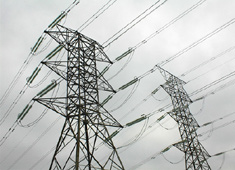Power cuts 'will not affect 2010'
Shaun Benton
28 January 2008The 2010 Fifa World Cup will not be affected by the power outages currently being experienced in the country, says Public Enterprises Minister Alec Erwin.
Erwin, along with Minerals and Energy Minister Buyelwa Sonjica, briefed journalists in Cape Town on Friday on the short-, medium- and long-term steps being taken by the government to alleviate South Africa's electricity demand and boost its power-generation capacity.
These present six-month, 18-month and longer-term "emergency steps to move the system out of its current state of criticality," Erwin said. "We are viewing the next two years as being critical. In this manner we plan to provide more room to manoeuvre both in this short-term period and in the important year of 2010."
At its meeting last week, the Cabinet was "fully briefed on the electricity situation as it specifically relates to the World Cup and on general progress with the preparations for infrastructure for 2010," Erwin told reporters.
"There is no threat to the successful holding of the event as plans to ensure electricity security in that period, and specifically for the event [the month-long soccer world cup tournament], are well advanced," Erwin said.
Back-up systems will be in place for all 10 stadium as well as the Fifa World Cup international broadcast centre. Erwin noted that back-up generators for all World Cup stadiums are in any case a FIFA requirement for hosting the tournament. "The [national electricity] grid is not a back-up," he said.
The government will also take steps to ensure additional generators, if needed, to secure supply for related areas such as those surrounding the 10 World Cup stadiums.
Apart from this, other specific plans are being developed to secure supply in critical areas that are associated with 2010. The government has time to implement these steps in advance, Erwin said.
And by 2010 South Africa expects to have a "far more comfortable" electricity reserve margin - the difference between electricity produced and electricity in use at any given point.
Apart from immediate demand-side management programmes to reduce energy consumption in the immediate term, the many measures being taken over the next 18 months should show significant results by 2010.
Efficient lighting programmes, solar water heating programmes, smart metering, fuel switching (to the use of liquid petroleum gas as an energy source for, especially, cooking) and a number of other steps are all expected to result in considerable savings.
By 2010, the government expects to meet the "real target" of between 2 000 and 3 500 megawatts (MW) of electricity being saved from the system, Erwin said.
Other medium-term interventions will influence behaviour usage over the long term, and the Electricity Regulation Act will be implemented to boost energy efficiency.
Ongoing price increases "to reflect the actual cost of providing electricity" of between 14 percent and 20 percent will also curtail demand. Power rationing is on the cards too, and this will involve quotas along with a variety of incentives and penalties, the minister said.
"We must stress that the successful implementation of these programmes will give us much comfort within a two-year period," Erwin said.
The government is also rolling out other measures, like solar-powered traffic lights, a pilot project for which has already proved successful in Cape Town. This will cost about R400-million to implement and is already well under way, with the first cities being targeted for this being the nine Fifa World Cup host cities.
Source: BuaNews













